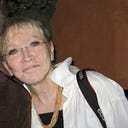Member-only story
The Power of the Beauty Effect
How it affects your life and how to use it.

“My mother always called me an ugly weed, so I never was aware of anything until I was older. Plain girls should have someone telling them they are beautiful. Sometimes this works miracles.” Hedy Lamarr
Beauty, or what each culture calls beauty, can be an illusion, a dominant force in life, or a trivial pursuit — take your pick. But there’s no denying that meeting the physical demands of beauty in any culture has benefits that can be life-changing. Careers, marriages, and fortunes are often built on the presence of beauty, and that is one of the prime reasons the beauty industry will always do well.
Women, during WWII, knew that beauty had a place in their lives, and cosmetics companies benefitted from it. “…a makeup case got a propaganda twist, where women believed that it was their patriotic duty to look as glamorous as the stars in glossy magazines. It wasn’t enough to just put their morning face on — that was no way to stick it to Hitler.” It was, women were told, their role in winning the war by keeping up morale and the pretense of self-assuredness.
Cosmetics, especially lipstick, to improve both the appearance and lift the mood was advised by the style-setters Coco Chanel ( “If you’re sad, add more lipstick and attack.”). Elizabeth Taylor advised, “Pour yourself a drink, put on some lipstick and pull yourself together.” Red was the prime mover.
Beauty and Psychological Research

The implications of beauty in our lives have gripped researchers for decades, if not centuries. A resulting trove of articles and conclusions are fascinating and sometimes contradictory.
Once a researcher declares a valid finding, another one sets out to counter it and thereby add to their reputation. Undoubtedly, the world of research is a dog-eat-dog one where only the most prolific and influential survive. What have they uncovered so far?
Primitive human beings had to classify things as safe or dangerous quickly. If we extrapolate that to foods, an…
